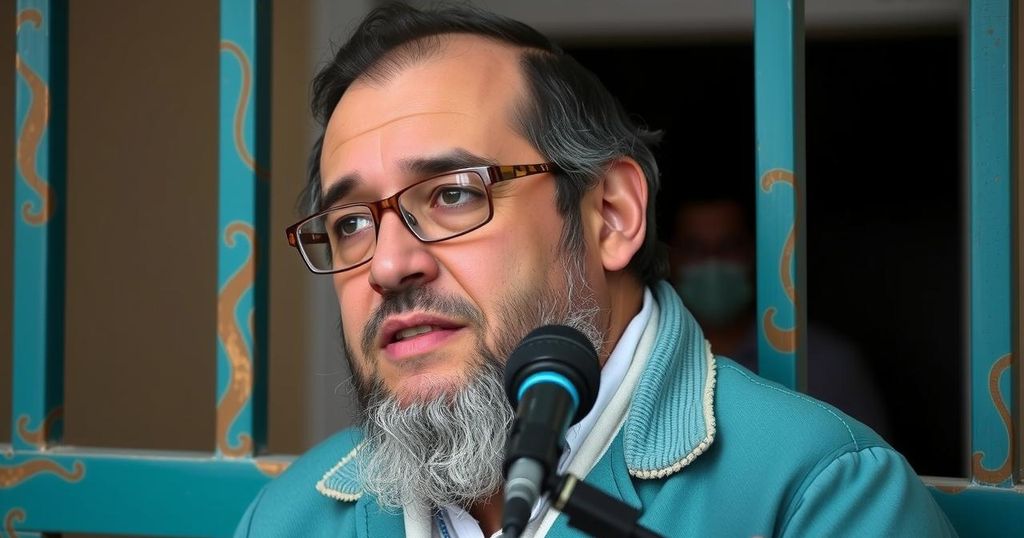Said Ait Mahdi, a Moroccan activist, was sentenced to three months in prison for defamation after criticizing the government’s response to the 2023 El Haouz earthquake. His detention since December 23 highlights tensions in advocacy for disaster victims amidst recovery efforts. Ait Mahdi plans to appeal, while the government claims progress in reconstruction following the tragedy that left nearly 3,000 dead.
A Moroccan activist, Said Ait Mahdi, who publicly criticized the government’s handling of the aftermath of the devastating 2023 El Haouz earthquake, was sentenced to three months in prison for defamation. His legal team reported that Ait Mahdi, a leader of an advocacy group for earthquake victims, has been in detention since December 23. Accused of “defamation, insult, and publishing false allegations intended to infringe on privacy,” he remains resolute, intending to appeal the ruling. Furthermore, three of his associates faced similar charges but were acquitted by the Marrakesh Court of First Instance.
The earthquake, registering a 6.8 magnitude, struck El Haouz province in September 2023, resulting in nearly 3,000 fatalities, injuring over 5,600 individuals, and destroying approximately 60,000 homes in the region. Many survivors have been forced to endure harsh winter conditions in temporary shelters. Ait Mahdi’s group has been actively lobbying for expedited reconstruction efforts and enhanced support for the afflicted communities. Reports indicate that the Moroccan government has issued a substantial number of reconstruction permits, with over 35,000 homes either rebuilt or in the construction phase.
Despite governmental assurances of some progress, Ait Mahdi’s remarks on social media have sparked controversy, as local officials allege these posts contain defamatory content. He has been mandated to compensate civil complainants with damages totaling 10,000 dirhams ($1,000) each, highlighting the tensions between civic activism and state authority in Morocco.
The context surrounding this case involves the aftermath of the El Haouz earthquake, which has had profound social and economic repercussions for affected communities. The earthquake, occurring in September 2023, not only resulted in a significant loss of life but also led to widespread destruction of infrastructure. In response, the government has initiated a large-scale reconstruction plan, yet reports of inadequacies and delays in aid distribution have spurred public discontent. Activists like Ait Mahdi play crucial roles in advocating for the rights and needs of victims who have been adversely affected by these disasters. This reflects broader issues of government accountability and the limits of freedom of expression within Morocco.
The sentencing of Said Ait Mahdi underscores the delicate balance between civic advocacy and governmental authority in Morocco. As the nation navigates the complex recovery process following the El Haouz earthquake, the call for transparency and accountability remains vital. Ait Mahdi’s case exemplifies the challenges faced by those seeking to voice dissent and demands for improved aid, Reconstruction, and community support. The legal outcomes of such cases will likely influence the future of civic engagement in Morocco.
Original Source: newscentral.africa






